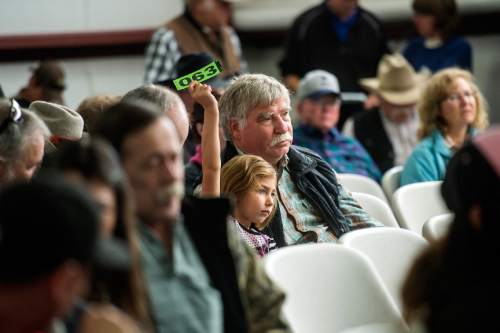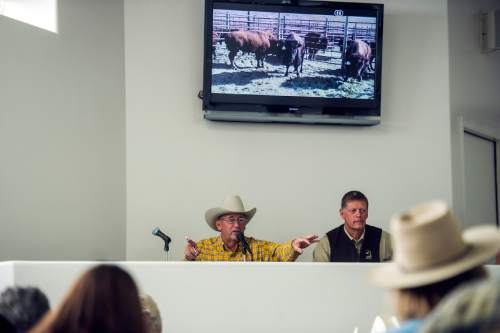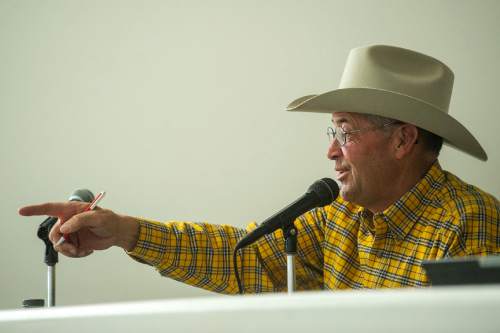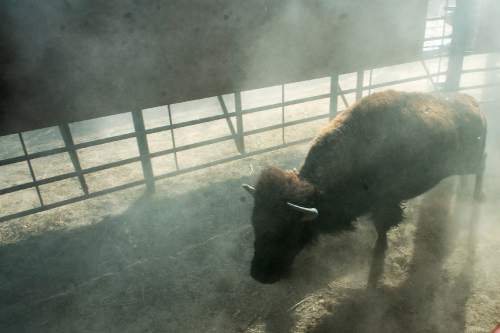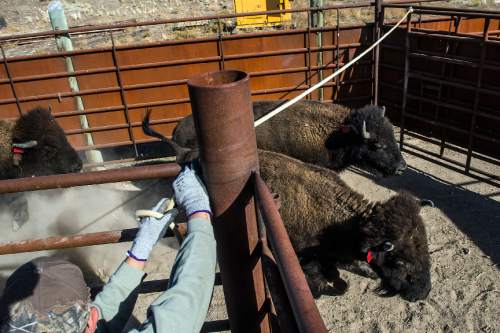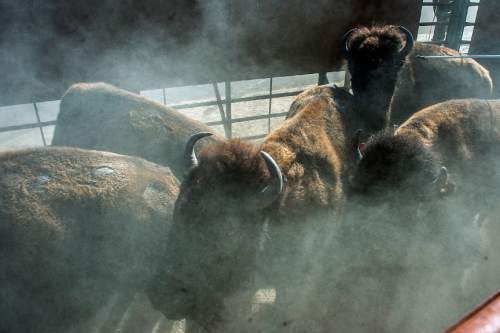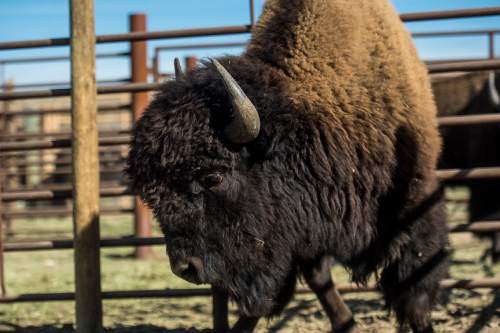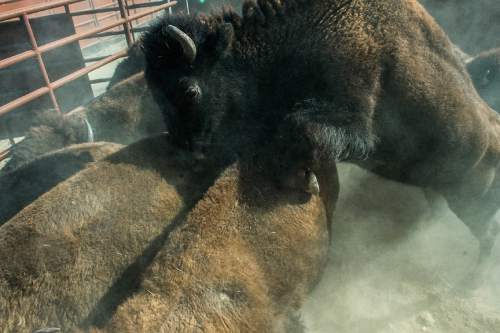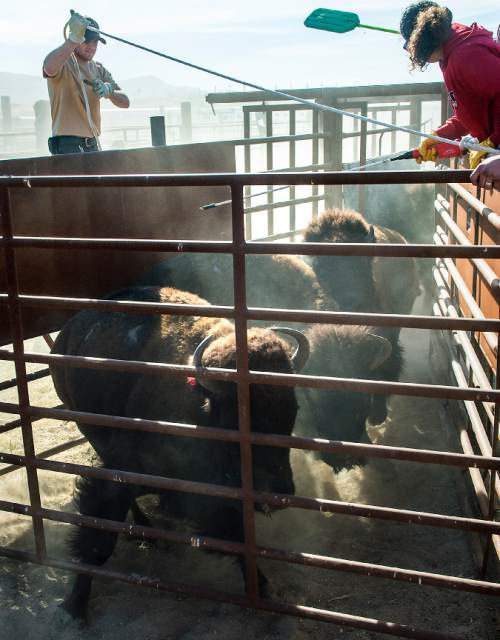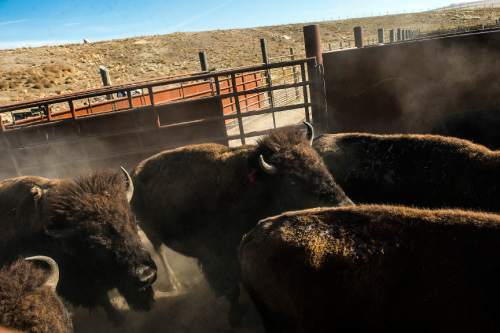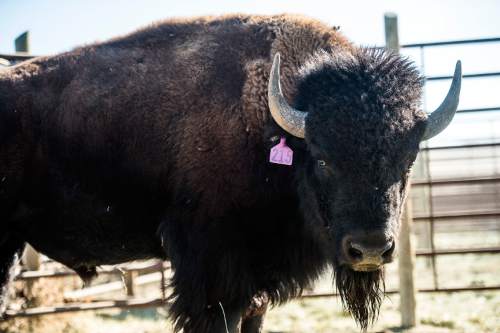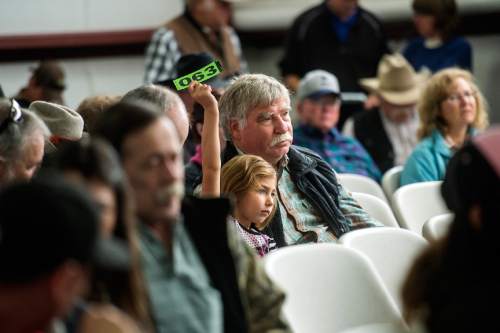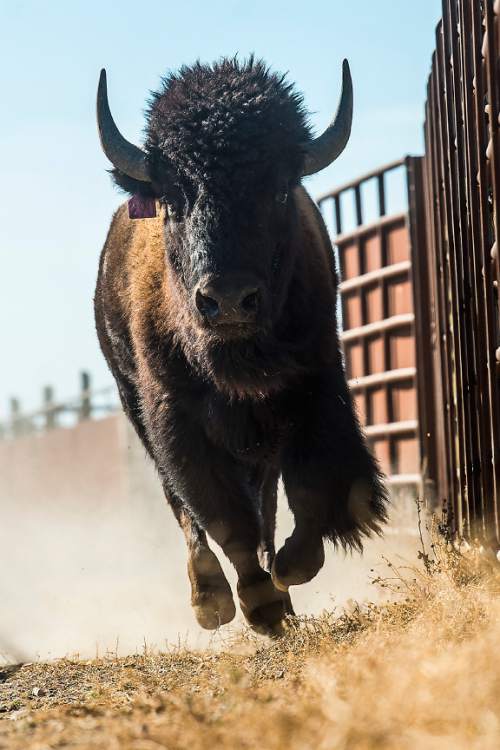This is an archived article that was published on sltrib.com in 2014, and information in the article may be outdated. It is provided only for personal research purposes and may not be reprinted.
Antelope Island • Abi Hansen held a little green card with the number 063, eager to spend her grandfather's money.
Her grandfather, George Hansen, happily instructed Abi, 5, how to hold the card up in the air and get the auctioneer's attention — and, more importantly, when to lower it when the price got too high.
After letting several sales go by, George Hansen let Abi hold the card aloft as the price grew to $2,900. When auctioneer Lane Parker declared "sold!," Hansen smiled at his granddaughter.
"You just bought a buffalo," he told Abi.
The 1,040-pound two-year old bull was one of 203 animals sold Saturday at the 10th annual live bison auction at Antelope Island State Park.
The auction is held to help control the bison population on the island in the Great Salt Lake, said Steve Bates, the park's wildlife manager. Bates said the state tries to maintain the wild bison population at between 500 and 550 head.
The auction raises around $300,000 every year, Bates said, which goes to wildlife programs on Antelope Island and other state park operations.
Around 50 or 60 buyers registered to bid on the bison Saturday. Some buy individual bison to be butchered for meat. A few buy them for private hunting preserves. Many are bought by commercial ranching operations, either for meat or breeding stock. (One buyer won the bidding for 77 head: Eight mature bulls, six yearling heifers, and 63 calves.)
"It's the original food. People used to draw pictures of it on caves," said Rick Hedlund, who with his wife Lori runs a 200-acre ranch near Dallas, Ore.
Last year, the Hedlunds bought 17 heifer calves at the Antelope Island auction, and this year they left with 12 heifer calves and six bull calves. "We're building our herd," Lori Hedlund said, adding that calves adjust to a new ranch more easily than older bison.
The Hedlunds and other buyers commented that the prices at this year's auction were higher than last year. For example, where bull calves sold for between $1,100 and $1,600 last year, this year they were fetching from $1,250 to $1,850 a head.
Mike Shaw, a plumbing wholesaler from Hooper, was attending his first Antelope Island auction, looking to buy a bison for the meat.
"It's just a lot leaner, and a lot better tasting than beef," Shaw said.
Hansen, an aerospace engineer living in Midway, has been attending the auction since the beginning. He buys a bison, has it processed by a professional butcher, and stores the meat in his freezer. This year, he bought the 2-year-old bull and a yearling heifer.
The first year Hansen attended the auction, he bought a heifer calf to be auctioned off at his church. After the kids in his LDS ward saw the calf, though, he said he didn't have the heart to have it slaughtered. Hansen sold it back to a breeder in Layton, and tells kids the bison "is married, with a couple of kids."
Twitter: @moviecricket


